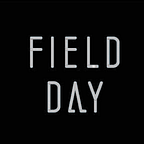Tradex: Teaching the Complexities of Finance Using a Game
UW-Madison School of Business Professor Antonio Mello wanted to better prepare his students for real-world situations and future careers in international finance. He needed an engaging, authentic way to teach about international capital markets that would give them the chance to apply the concepts they learned in class. In 2014, he worked with Field Day Lab (then known as the Mobile Learning Incubator) and the Educational Innovations team at the WI School of Business to develop an online simulation. Originally called The Firm, Tradex has been used in upper-level undergrad classes since fall 2015.
One of Professor Mello’s students, Veer, stated that he had learned trading strategies in previous classes, but they just didn’t stick. “You get nervous about how you’d use them in the real world,” he said.
And it’s no wonder — to the beginning investor, trading strategies seemingly contradict each other. While one strategy says to buy stocks or currencies that are going up, another strategy says to sell. Learning theories is one thing, but applying them to split-second decisions and millions of dollars is completely different.
Like Professor Mello, we thought a game would be a perfect opportunity for students to play out these strategies in the real world. By using historical data, the simulation could immediately show students the effects of different investing strategies. (Most other simulations take several months for the students’ investing strategies to affect their portfolios because they are tied to current market trends.)
Tradex can be played in a single 75-minute class period. As a classic, situated game, it simulates the process of buying and selling international currencies. Working with real data, the players start out as new traders. With the guidance of an in-game coach, they must grow the portfolios they hold, applying the strategies, tools, and technology that traders use daily.
As the students master these strategies, new strategies and actions are available for them to perform and the coaching tapers off to reflect the real world. Eventually, the players are completely on their own. This kind of leveling, or scaffolding, allows students to master concepts at a pace they can keep up with. They experience risk in a way most students only experience as new traders on the job.
The game has undergone refinements since it came out of the Mobile Learning Incubator . Professor Mello has incorporated a component of reflection after students finish playing the game so that they reflect on, for example, the psychological traps they fall into when making decisions under time pressure.
“Using the strategies practically how traders would use them — it’s engraved in my mind. I won’t forget those strategies ever again,” Veer said.
“It’s a very powerful way of learning by doing,” said Professor Mello. “It makes it simpler for the students to engage in a conversation with professionals….they can immediately connect.”
Another student, Henrik, said “You could really see what you were learning was being applied to something real; you could go out in the world and do this — tell businesses that you’ve done something in your classes more than just theory.”
Professor Mello has noticed a definite positive impact on how deeply his students understand the different trading strategies: not only can they identify key characteristics and purpose of each strategy, they are also now able to apply the different strategies in authentic trading situations.
Learn more in this video by Professor Antonio Mello
To play this game contact Professor Mello directly or sign up for UW Madison Course: Finance 445 (Multinational Business Finance) where you will play it in class.
